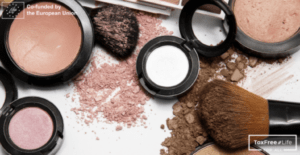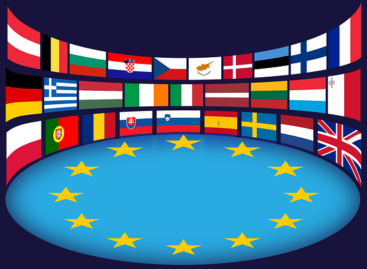New survey: consumers don’t want toxic chemicals
A new survey across five countries has revealed serious concerns about the presence of dangerous chemicals in everyday products such as cosmetics, cleaning products and clothing. According to the research, conducted by the Association of Conscious Consumers and its partners, consumers are increasingly informed and are increasingly demanding stricter regulations on the use of harmful chemicals, transparency and mandatory prior testing. The new findings come in stark contrast to a recent proposal from the European Commission that would relax rules on the use of chemicals – even for carcinogens.
 The consumer protection partnership “ToxFree LIFE for All” has launched an online survey to assess how aware people are of the chemicals that are harmful to health and the environment in everyday products. The partnership aims to raise awareness about these dangerous substances and to support forward-looking solutions that protect both people’s health and the planet.
The consumer protection partnership “ToxFree LIFE for All” has launched an online survey to assess how aware people are of the chemicals that are harmful to health and the environment in everyday products. The partnership aims to raise awareness about these dangerous substances and to support forward-looking solutions that protect both people’s health and the planet.
The survey collected responses in Hungary, Austria, Slovenia, Slovakia and the Czech Republic in 2024 and spring 2025. The partnership brings together the Hungarian Association of Conscious Consumers, the Austrian VKI, the Slovenian ZPS and the Czech dTest, as well as the Czech environmental organization Arnika.
In 2024, they published a highly publicized comparative product test that showed that a third of the underwear tested contained endocrine disruptors bisphenols. Their next test, planned for autumn 2025, will examine unwanted chemical contaminants in headphones.
The survey results show that the ToxFree LIFE for All campaign and the publication of the test results have significantly increased public awareness of the effects of chemicals on health and the environment. The campaign has increased interest in information on the topic and more people feel informed. While 15% of respondents considered themselves well-informed in 2024, this proportion has increased to 17% by 2025. At the same time, the proportion of those who do not feel sufficiently informed has decreased from 46% to 41%.
Related news
European Court of Auditors: EU Commission proposals affecting the common agricultural policy may cause uncertainty
🎧 Hallgasd a cikket: Lejátszás Szünet Folytatás Leállítás Nyelv: Auto…
Read more >Thousands of farmers protest in Brussels against EU-Mercosur agreement
🎧 Hallgasd a cikket: Lejátszás Szünet Folytatás Leállítás Nyelv: Auto…
Read more >Related news
Nestlé to sell remaining ice-cream assets but commits to Froneri venture
🎧 Hallgasd a cikket: Lejátszás Szünet Folytatás Leállítás Nyelv: Auto…
Read more >









